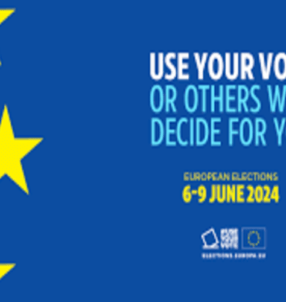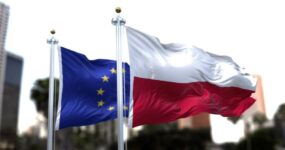Europe’s energy ministers met on Tuesday (25 October) to discuss how to tackle the ongoing energy crisis, but while there was support for working together on joint gas purchasing, EU capitals are still split about price caps.
Europe has been facing an energy crisis for over a year and there is growing concern about scarce gas supplies and high bills for consumers.
“All countries share the need for lower prices, security of supply and calming the markets,” Dutch energy minister Rob Jetten told journalists after the meeting.
“Any measures that we take in the upcoming weeks and months should make sure that we have security of supply in Europe,” he added.
At their meeting, ministers discussed new emergency measures proposed by the European Commission last week, including joint gas purchases, solidarity between EU countries in emergency situations and measures to limit gas price spikes.
Price caps were the “most contentious” issue while the measures on solidarity and joint purchasing could prove “more smooth sailing” in negotiations between countries, according to an EU diplomat who spoke to EURACTIV after the meeting.
In its latest proposal, the European Commission suggested a default agreement for sharing gas between countries in an emergency and an obligation for countries to pool demand for at least 15% of their storage filling requirements.
Czech minister Jozef Sikela, who chaired the meeting, said ministers “agree that we should focus on joint purchases” and “welcome the solidarity measures”.
And joint purchasing was “emphatically” welcomed by Germany’s Robert Habeck, who said that “by bundling gas demand and increasing purchasing power, we can usefully combine our forces in Europe and thus achieve better prices”.
More work needed on dynamic price cap
However, there is more work needed on capping gas prices. Last week, EU leaders called on their ministers and Brussels to “submit concrete decisions” on a temporary dynamic price cap for fossil gas transactions.
There are now 12 countries in favour of the measure and 10 more who are cautious, an EU diplomat told EURACTIV.
But there are still a lot of details left to be decided, including the level of the cap. Despite this, it is hoped the measure could be adopted in November.
EU leaders also called for further work on capping the price of gas used in electricity generation, similar to a model used in Spain and Portugal.
But ahead of the meeting on Tuesday, Brussels circulated a non-paper to EU capitals, which cited concerns about this. Among those is the risk that cheaper gas prices push up consumption and leads to exports of subsidised electricity out of the EU.
The non-paper was “scathing”, one EU diplomat told EURACTIV.
“I think a lot of member states see the issues with it. Though there are plenty more discussions to be had,” they added.
Supporters still include France, Portugal and Spain, who have spoken in favour of the benefits. According to EU energy chief Kadri Simson, there are “different views” among capitals on the measure.
Meanwhile, Sikela criticised the EU executive for its handling of the issue, saying at a joint press conference with Simson that “it is clear that the Commission and maybe a few member states do not see an Iberian model as a way forward”.
Sikela had previously said the non-paper was “missing a lot of things” and that Brussels needed to “deliver the remaining parts of the puzzle” requested by EU leaders, including an impact assessment and proposal.
But Simson defended the Commission’s approach, adding that it is now “up to member states if they will find a solution, especially how to address the flows to third countries and how to agree on the cost sharing principles”.
Preview of market reform
The second part of the non-paper, which the Commission later circulated to the media, focused on the reform of the electricity market, which the EU executive has promised to overhaul in order to decouple electricity from gas prices.
The non-paper offers a glimpse into the Commission’s thinking on how to approach the reform, which is expected to be tabled in the first quarter of 2023.
The idea is to set up a dual system with inframarginal technologies, like renewables and nuclear, remunerated via contracts for difference established through tendering processes.
Meanwhile, gas would “counterbalance” intermittent renewables until alternative technologies can settle in to achieve this.
The role of coal power as a balancing technology is not mentioned in the non-paper, which lacks many details. For instance, there is little explanation as to how the system would maintain the current market model in which the cheapest energy sources – normally renewables and nuclear – price out more expensive energy sources, like coal.
It also does not say whether the auctioned contracts would be technology neutral. If so, there is the risk of cheap solar power winning most auctions rather than the mix of renewables required to balance the system.
The wind industry body WindEurope is “cautiously optimistic” about the idea, a spokesperson told EURACTIV, adding that the group supports contracts for difference as they can help stabilise prices and provide investor certainty. However, there is still more detail needed, particularly on how existing projects would be affected, before WindEurope can fully back the plan.
Meanwhile, Dutch minister Rob Jetten said the Netherlands “is open to structural reforms of the market, as long as they do not slow down the energy transition and as long as they do not harm the security of supply for the European continent”.
And France said decoupling electricity prices from gas prices would be “beneficial for all countries as long as it is applied by all,” according to the country’s energy transition minister, Agnès Pannier-Runacher.
Gas prices drop, but work must go on
The meeting marks the fifth gathering of EU energy ministers organised by the Czech Republic since they took over the six-month rotating EU presidency in July.
But unlike previous ones, it began with good news as EU gas prices dropped beneath €100 per megawatt-hour.
The drop, stemming from mild weather, full storages and demand reduction, is “good news”, commented Luxembourg’s energy minister Claude Turmes.
But low prices should not mean the EU slows down the implementation of emergency measures, according to both Habeck and Sikela.
“We must not fool ourselves: the price level is still high, and it won’t be like it was before Putin’s war. That’s why we have to keep at it,” said Habeck.
EU energy ministers are due to meet again on 24 November with the hope of passing the package of measures proposed last week.
The adoption depends on the “willingness of countries” according to Sikela, who added that, although he wants measures that all EU states can agree to, they would have to accept decisions made by qualified majority in the worst case scenario.
Source: Euractiv.com















Leave a comment